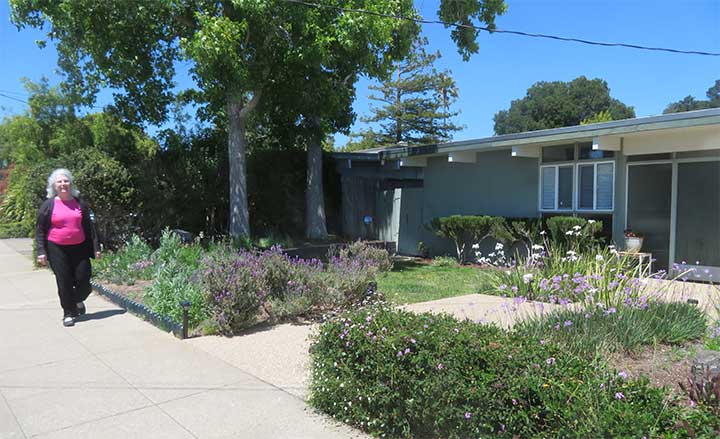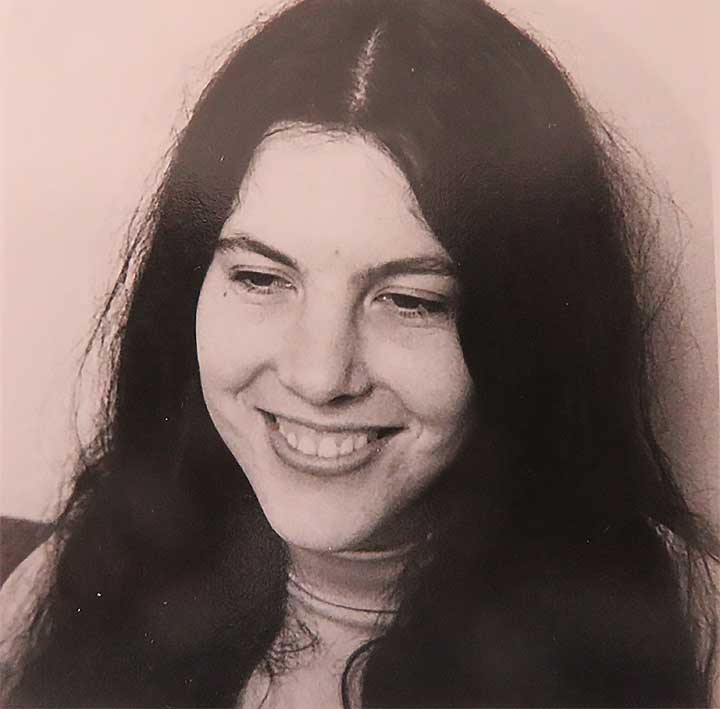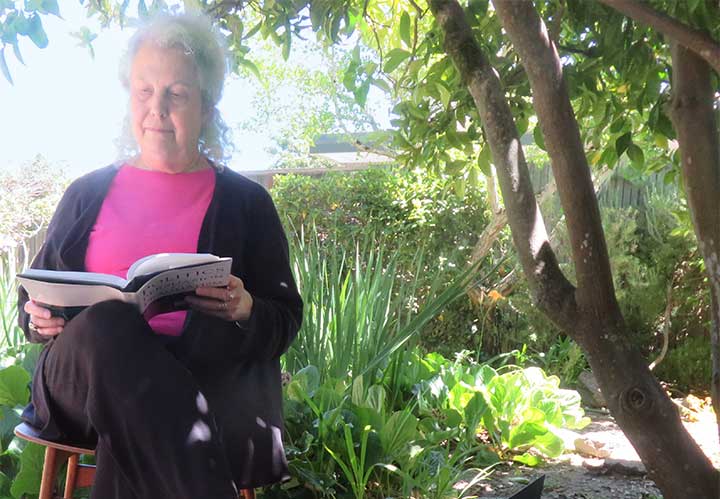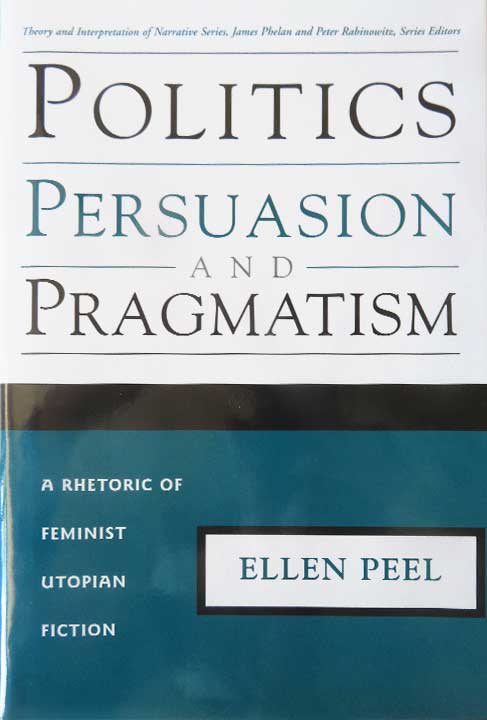
Making Frankenstein Relevant for Today
 |
There was something a bit utopian in the thinking of the architects, including some of Joe Eichler’s architects, as they planned modern housing for modern man. Bold thinking and innovative design could result in better living for all, they thought.
You know who had a similar thought? Victor Frankenstein.
“Victor Frankenstein thought, ‘Oh, I’m going to make this great thing.’ And then of course, it all went wrong,” says Ellen Peel, an Eichler homeowner and a San Francisco State professor emerita, whose literary interests include “feminist theory, speculative fiction, fantasy, and utopias.”
“My main focus these days is on what I call the ‘constructed body,’" she says, adding, “Frankenstein’s creature is of course the best example. Constructed bodies often start as utopian but end as dystopian.”
One of the joys of meeting folks who live in mid-century modern neighborhoods is discovering artists, thinkers, do-ers – folks who are far from the suburban ‘Stepford Wives’ stereotype. (Speaking of constructed bodies…)
 |
Ellen grew up in one of the nation’s oldest and woodsiest mid-century modern neighborhoods, Hollin Hills, just outside of D.C. She remembers it as artistic, a liberal enclave of freethinkers, a place that stimulated her political and literary interests – and kindled in her the love for modern architecture that brought her, in 1989, to Eichler’s San Mateo Highlands.
Ellen Peel knew she was growing up in a special place. But was it a utopia? No, she says, because utopias exist only in fiction. “I don’t think it’s really possible. It’s very hard to found such a community,” she says.
She also developed the concept of 'pragmatic utopianism,' versus the standard 'static' utopianism, in which one leader promulgates unchanging rules. Pragmatic utopianism, which she says “is particularly well suited to feminism,” allows for the society to change with circumstances.
“Although some feminists employ a static way of thought, feminism generally questions patriarchy (often questioning itself as well) and evolves along multiple paths,” she has written.
 |
“Perhaps living in mid-century modern communities is both a cause and effect of my idealism, which relates to my scholarly interest in utopias,” she says, noting that utopian studies and the 'constructed body' are deeply relevant to us today.
One of her articles “is about [science fiction novelist] Octavia Butler’s ‘Earthseed’ series, which is about a utopian movement within a dystopia. In recent years, the near-future dystopia that Butler envisioned in the 1990s has gotten a lot of attention because of its similarities to our present time,” she says.
And in a time when people are questioning everything about their identities, from sexual to racial, and when technologies are developing to boost intelligence, increase strength, and combine human minds with silicon – soon won’t we all be constructed?
“Robots, anorexics, vampire thralls, people with prosthetics, men perceived as women -- all can be seen as constructed bodies,” she says, “both in the sense of a conceptualized body and in the sense of a body created or modified through artificial means.”
 |
She adds, “Technological acceleration makes the themes urgent.”
Ellen graduated Radcliffe magna cum laude in 1973, studied at Harvard and got her Ph.D in comparative literature at Yale. She spent time helping edit a feminist magazine, 'Second Wave.' Social change and unrest of the times played a large role in her life, feminism, Vietnam, Black Power, and other social movements.
She was teaching at the University of Cincinnati at the end of the 1980s, and had a bi-coastal relation with a man who worked on the San Francisco Peninsula in tech. That is why she moved to San Mateo -- which proved a short hop up 280 to San Francisco State.
Raising a daughter in the tract, Ellen enjoyed taking her to the community center and pool, the July 4 parades, and other events. She remembers “having a New Year’s Eve kind of moveable feast among some neighbors, where we have cocktails at one house, appetizers, main dish, dessert at others.”
 |
Ellen, whose works include ‘Frankengenre 1.5: Taking Constructed Bodies for Granted (Almost),’ says Frankenstein as an academic topic “became more respectable in the early and late '70s, and early '80s.” In 2018 Stanford put on a multi-day conference on Frankenstein, with Ellen participating.
“People come to [Frankenstein] for the sensationalism, because it’s really compelling and scary and fascinating. And a lot of them stay because it involves all these really interesting themes. Creating a child. It involves religion,” she says.
“It ties in with how God created Adam and Eve. The subtitle is ‘The Modern Prometheus,’ so it’s about overreaching. I’ve taught this course about Faust. People like to read about it, because we’d all love to have more than we’re supposed to.
“But then at the end, at least in most of the plays and books, the person gets punished.”
- ‹ previous
- 394 of 677
- next ›



